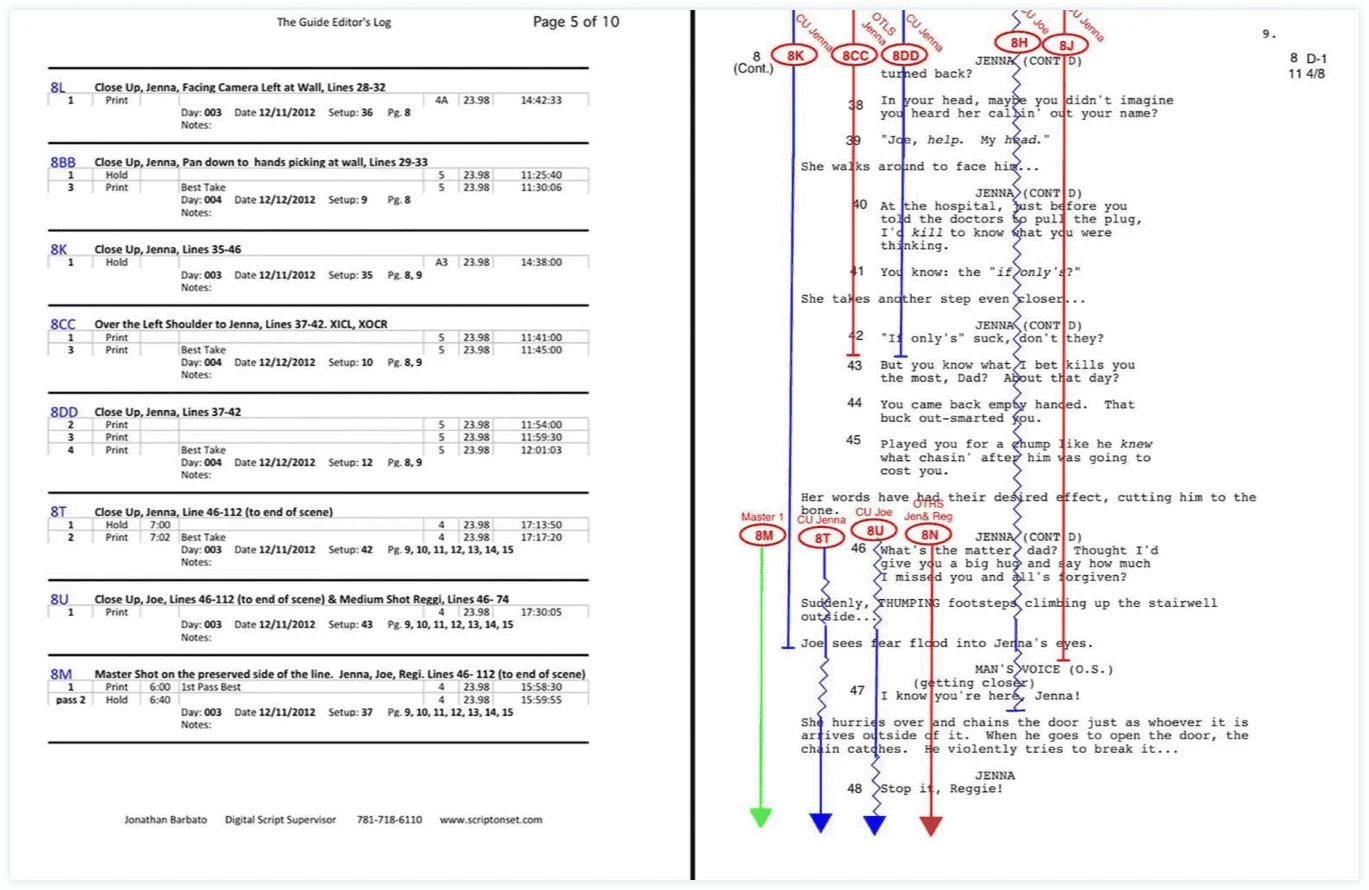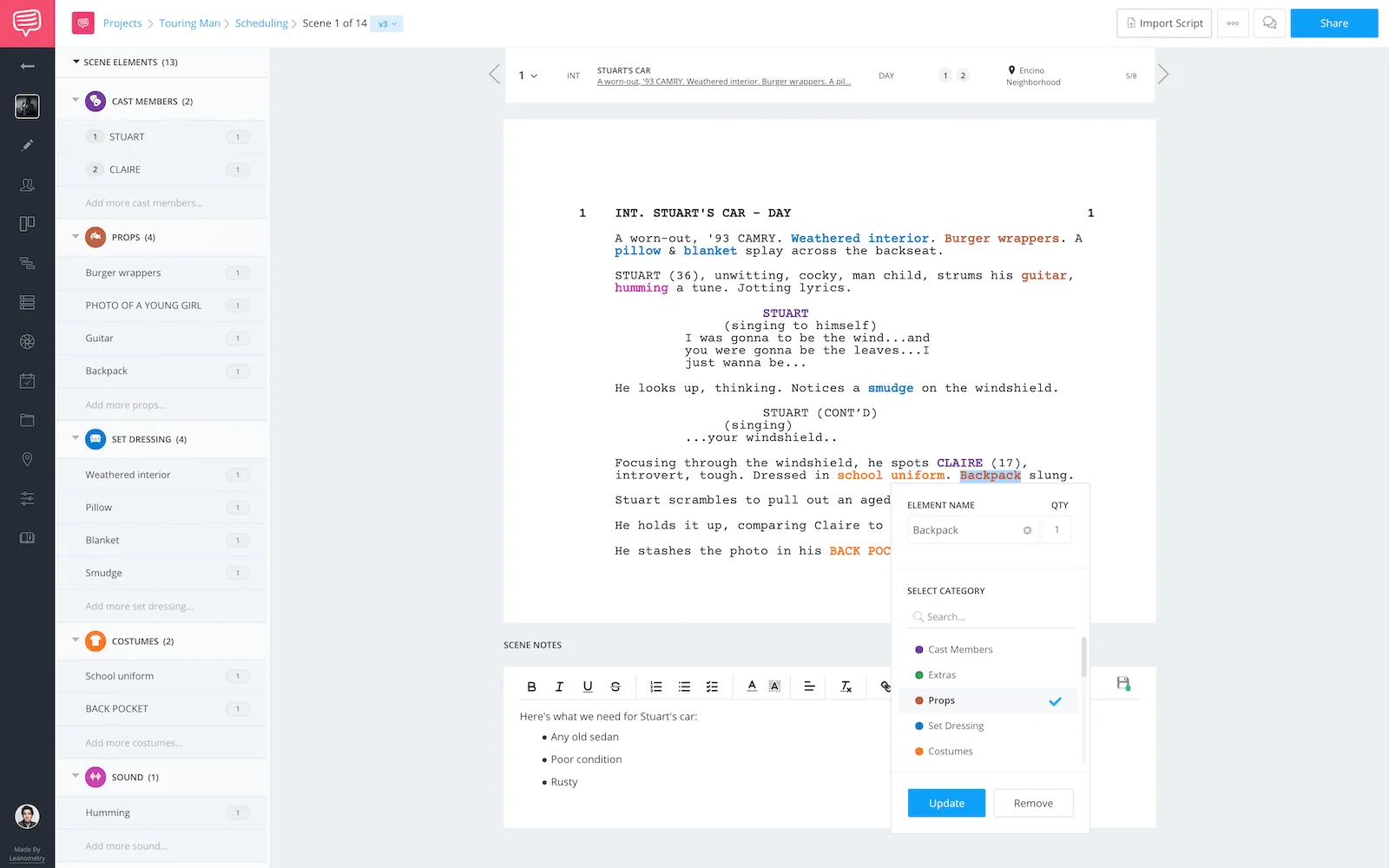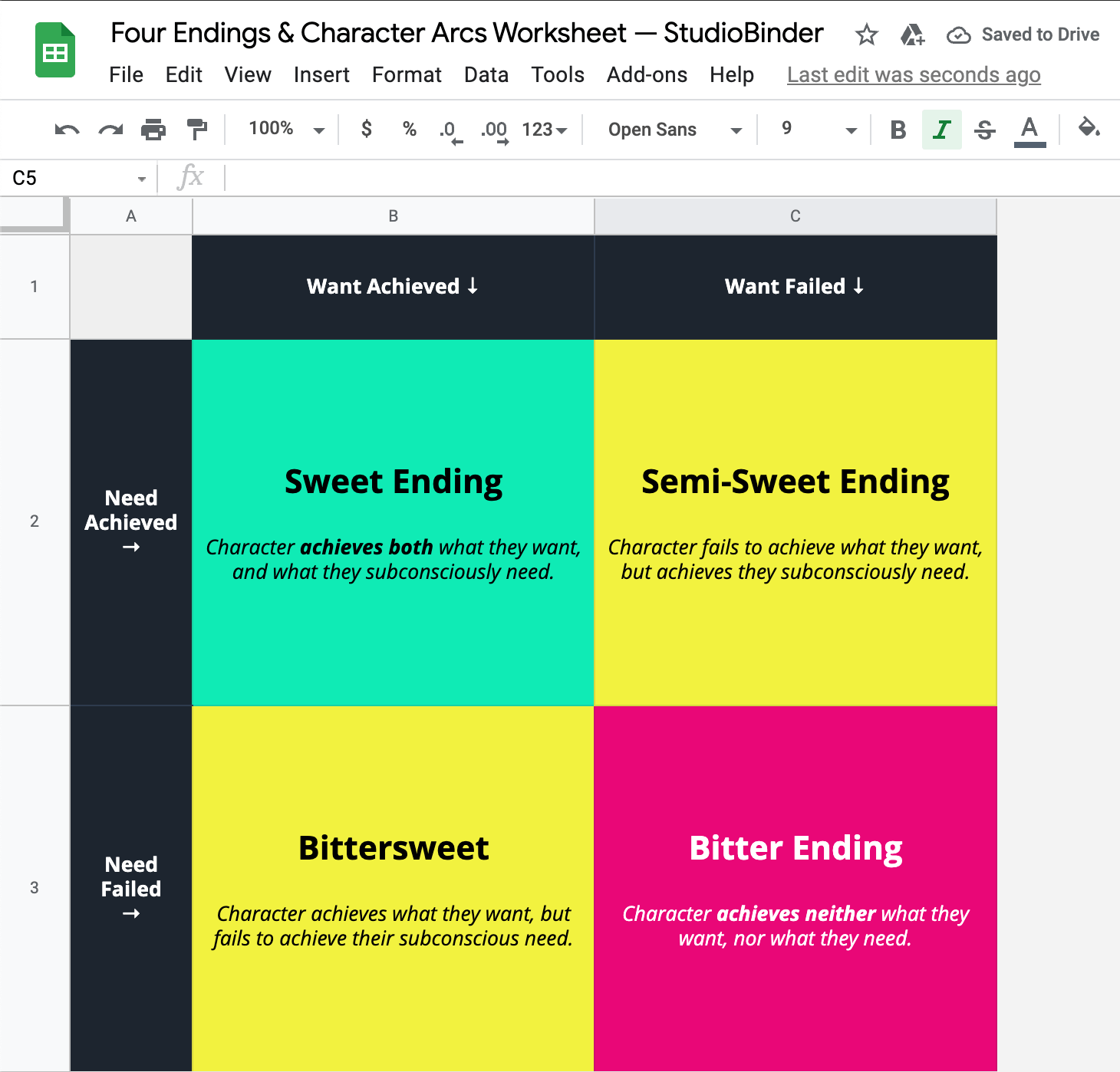We’ve all seen a continuity error in a film or noticed a plot hole at some point. The fact that you don’t see hundreds of them is because productions hire someone to pay attention to the details of a script. This person on set is known as the script supervisor. We’ll go over what a script supervisor does, why they’re so important, and also provide a free script supervisor template and forms.
What Does A Script Supervisor Do?
Know what the position requires
The script supervisor is an integral role to every production.
They're involved in every step of the process, from pre-production all the way into post. The "scripty" uses script supervisor forms to make sure that continuity errors are avoided in every part of the process.
The script supervisor is the security net for department heads, the producers, and the director. For lack of better words, they observe and monitor nearly everything. For a complete guide to the major roles in film production, check out our ultimate guide to film crew positions.
SCRIPT SUPERVISOR DEFINITION
What is a script supervisor?
A script supervisor (or continuity supervisor) is a member of a production crew that supervises continuity. The domain includes many departments such as properties, costumes, set decoration and dressing, hair, makeup.
The script supervisor also monitors the actions of the talent during the filming of scenes.
Script supervisor job description and duties:
- Breakdown the script for various elements including costume, location, time of day, etc.
- Take copious notes on everything that was shot, including slate info, take numbers, length of takes.
- Provide the editor and post-production team their collected notes for reference.
In short, a script supervisor is one of the indispensable crew members on set — they provide the eyes and ears of multiple departments to make sure the giant jigsaw puzzle of a project can be reconstructed again later.
If you're still unsure just how important it is to have a script supervisor on set, let's take a little test. Here's Martha Pinson, a top-level script supervisor who has worked with filmmakers like Scorsese, to show us how her work goes unnoticed by the audience — which is the point!
Script supervisor duties explained
The main responsibility of a script supervisor is to track the continuity of everything on screen between every set up, take, scene, and episode.
That means that if an actor takes a drink before a certain word, the "scripty" marks that down in their script supervisor form and tells the director if they miss it.
This can be crucial in the edit bay because if they don’t monitor this, the shot and reverse shot won’t add up.
They also demarcate where certain props and set decorations are from one position to another, so the you can avoid any embarrassing continuity errors.

The script supervisor forms explained
They'll take pictures of the frames at the beginning and end of every scene as things change and move.
That way, when they reset, or the director moves on to a new set up, every department can know where everything was originally placed.
We'll get into further detail, but if you don't want your project to make those "Top 10 Continuity Error" lists, then hiring a great script supervisor is key.
Script supervisor notes matter
Before The Cameras Roll
The importance of a script breakdown
The script supervisor's job description includes work in pre-production, well before cameras are rolling. The preparation they need to do ahead of time will ensure a smoother job once they're on set.
And this preparation starts with a script breakdown.
That's where a script breakdown becomes so vital to a successful production. We'll go over how script supervisors use a breakdown but let's first define what it is exactly.
SCRIPT BREAKDOWN DEFINITION
What is a script breakdown?
A script breakdown is an important filmmaking process that allows you to identify all the script elements needed to prep, schedule and budget a film production. By creating a script breakdown, you will determine the technical and creative requirements for each department.
For more on how a script breakdown is used in this role, here's script supervisor J. Timothy Hunt talking about how to line a film script and how it prepares him for "the big game" once the cameras are rolling and his job kicks into high gear.
Script Supervisor position in detail
There are many ways to actually break down your script but, unless you're using dedicated script breakdown software, this process could get disorganized and useless real quick.
There are so many elements that need to be in every scene. Props, costumes, livestock, vehicles, FX, and more. It can be hard to keep track of things as new drafts are delivered.
This is where StudioBinder comes into play.
All major script notes are reflected in the script breakdown
Once your project is ready, follow these steps to effectively break down your script:
- Input your script into script breakdown software
- Tag your elements
- Generate reports
- Generate strip boards
As you go through and do each scene breakdown, you will find yourself becoming familiar with the elements your production will require.
Here's an example of a script breakdown that you can explore further.
If you're old school and want to tackle the breakdown process by hand, we've got you covered as well. You can download our breakdown sheet template and start the process immediately.
Either way, the breakdown is a fundamental part of a script supervisor's job description. Now that we know how important this process is, let's get into a little more detail.
PRODUCTION ROLE
When shooting begins
Most people assume that the hardest part of a scripty's job is once their on set and the director calls action — and they'd be right. Let's let Mr. Hunt walk us through just how complex things can actually get during production, from a single shot to the entire shoot.
The myriad of tasks a script supervisor does on set
The script supervisors role once production begins is the official timekeeper as well as the monitor of all things on screen. This includes but is not limited to the following:
Shot list
The script supervisor will have studied the shot list and storyboard prior to the beginning of production. They will have the order of the shoot for the day down to a science.
Camera crew info
The script supervisor will be aware of the entire crew’s activities even if there are more than one. They will know exactly what each group is doing and how each take is marked on the slate.
Line readings for talent
A large part of the job will be making sure the Talent says the lines as written or agreed upon. It also makes sure that the dialogue that needs to be filmed is shot.
Rehearsal continuity
What happens in the lead up to the cameras rolling will be carefully noted and monitored for consistency.
Stopwatch
The script supervisor will almost always have an apparatus for timing of the scenes filmed so that the director and editor’s work is a but less chaotic, especially on multi-cam sitcoms.
Video Village
Video Village is the domain of the script supervisor. Other members of the crew or executives may jockey for position, but the scripty will always have a seat in the front row.
Shot notes
The script supervisor will make any number of notes regarding the scenes being filmed, but the most important will more than likely be those that come straight from the director’s mouth.
Daily production reports
The
RELATED POSTS
POST-PRODUCTION
When the shooting is over
Unlike many other positions on set, when the production wraps, the scripty's job is not yet done. All of their work is now passed onto the post-production team as a guide for re-assembling all the pieces into a cohesive whole.
The script supervisor must consolidate all of their work to produce a production book. How these are presented can be as unique as the person in the role, but generally includes the marked script with detailed notes, scene reports and production totals.
Did You Know?
Like many other departments in filmmaking, script supervisors have their own dedicated union, Local 871, which was founded in 1958 and now boasts over 2,000 members.
WRAPPING UP SCRIPTys
Why hire a script supervisor?
If it wasn't obvious by now, there are many reasons why you should consider bringing a script supervisor onto your production team. With all the elements that go into making a film, it's easy to lose track of small, yet important, details in the process.
If a character spills a drink in the car but show up at the bar with a clean shirt, that's a continuity error.
And the internet loves to point those out.
The best way to avoid being thrown on the list of errors is to hire a script supervisor. Script supervisor notes become vital documents on every movie and television show.
The scripty maintains a critical voice in that conversation and uses detailed script supervisor forms to keep track.
Continuity is more than just from one shot to another, it's over the development and arc of major characters and plot points. By keeping the details in order, the overall project can be seamless.
UP NEXT
How to master the script breakdown
As we discussed, the script breakdown is an integral part of the script supervisor's job description. That process was touched upon here but there is a lot more to it. Let's walk through the script breakdown process in greater detail so that you and your project can be fully prepped.
Up Next: Mastering the breakdown →
Easily create script breakdown sheets online.
Import scripts. Tag elements like props, wardrobe, and cast. Create breakdown summaries and DOOD reports in a snap.


